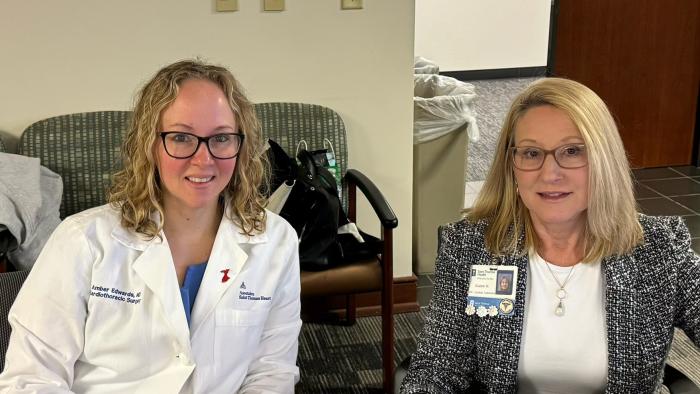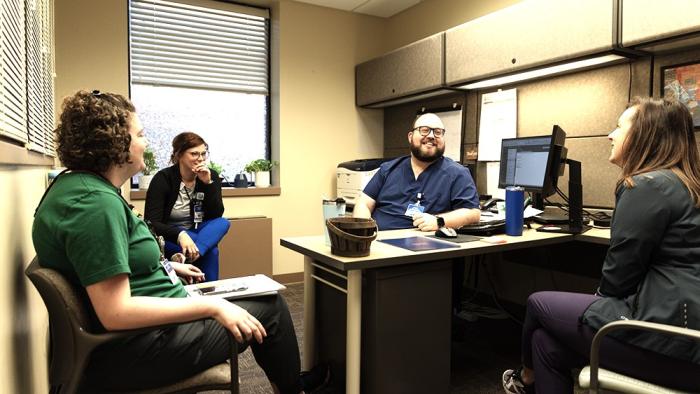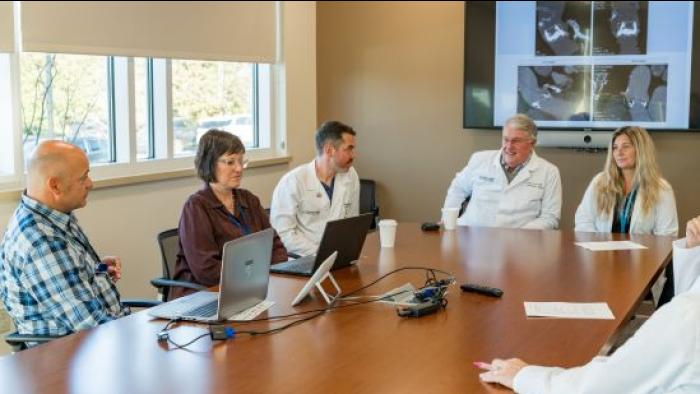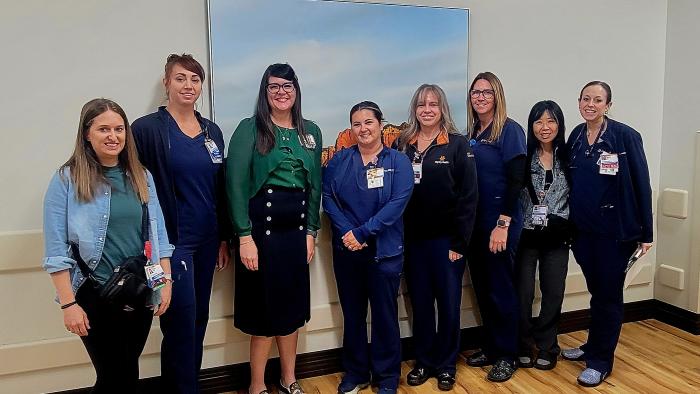About the Database
As the specialty’s leader in quality improvement, the STS National DatabaseTM provides a true national benchmark for cardiothoracic surgery. It is one of the largest and most comprehensive clinical registries, with data on nearly 10 million procedures from more than 4,300 surgeons, including 95% of adult cardiac surgery procedures.
The Database provides highly accurate, procedure-specific risk models based on real-world daily practice, allowing hospitals and surgeons to identify best practices and potential gaps, and evaluate their performance against national and regional competitors. Data is updated continuously, offering surgeons the ability to monitor progress and make patient care decisions in real time.
Building on its legacy of high-caliber operative and 30-day outcomes, the Database is expanding to include long-term data. Soon it will be the most comprehensive longitudinal instrument for quality available for cardiothoracic surgery. This quantum leap for the specialty will provide critical insights into long-term outcomes.
Innovations continue to enhance the value of the Database for surgeons, data managers, and CT surgery teams. Recent enhancements include a new mobile-friendly adult cardiac risk calculator; an adult cardiac Executive Summary dashboard focusing on high-impact data; and direct data entry, which reduces hospital costs and increases efficiencies.
A new Congenital Heart Surgery Database upgrade streamlines data collection and includes data on adults with congenital heart disease. And supplemental data collection for thoracic surgeons focuses on neoadjuvant NSCLC therapies.
Risk-adjusted report enhancements include a multi-valve risk model, isolated tricuspid risk model, aortic risk model, and multi-procedure composite and failure to rescue measures.
- High-impact, practice-changing research powered by the Database bolsters and advances the specialty, supports CT surgery teams, and informs patient care decisions.
- Surgeons who use the Database to inform treatment decisions are best positioned to deliver high quality, long-term patient outcomes.
- Surgeon-level procedure reports, with NPI-level case volumes by procedure and year, help individual participants measure productivity and improve outcomes.
Hospital benefits:
- Publicly reported surgical outcomes from the Database drive reputation and help patients make informed decisions about accessing care.
- Increased efficiencies in data collection and analysis are reducing costs for hospitals and healthcare systems.
- Quality improvement initiatives improve safety and enhance the bottom line.
- Annual Database audit ensures that data are consistent, accurate, and complete.
- The Database is the most comprehensive resource for assessing trends in cardiothoracic surgery and device performance.
- Cost-effective, real-world data can validate safety and effectiveness of devices, help reduce costs of clinical trials, and support product innovation.
STS National Database Case Studies

Better Medical Record Management
In this fast-paced healthcare environment, Ascension Saint Thomas Health, Nashville, encountered persistent issues with missing documentation, including anesthesia records, perfusion records, and test results. Learn how the data and patient care teams used the STS National Database to identify obstacles and deploy processes to improve patient care. Read more.

Addressing Antibiotic Discontinuation
Boone Health, Columbia, Missouri, set out to address issues related to the appropriate discontinuation of antibiotics within 48 hours after cardiovascular surgery. This case study examines how the multidisciplinary patient care teams used the STS National Database to take actions to improve outcomes. Read more.

Enhancing Clinical Documentation
UC Davis Health, Sacramento, California, knew that implementing quality improvement measures required operational and clinical analytics to guide care redesign efforts. This case study explains how the health system addressed clinical documentation challenges through better data, education, communication, and collaboration across disciplines and improved outcomes. Read more.

Getting Patients Off the Ventilator Faster
ProHealth Heart and Vascular Care in Waukesha, Wis., embarked on a multidisciplinary initiative to reduce ventilation times for isolated Coronary Artery Bypass Grafting patients at Waukesha Memorial Hospital. The goals: Reduce the risk of patient harm associated with mechanical ventilation and achieve significant improvements in teamwork and safety culture. Read more.

Understanding Data Used to Improve Cardiovascular Care
Quality metrics is paramount for achieving better patient outcomes. But having a lot of data is not enough. Understanding how data is used to inform patient care decisions was critical to improving patient care at CommonSpirit Health in Chicago. It fostered a more collaborative environment conducive to continuous improvement. Read more.
Adult Cardiac Surgery Database
The STS Adult Cardiac Surgery Database (ACSD) is the world's premier clinical outcomes registry for adult cardiac surgery. Launched in 1989, the ACSD contains nearly 8.5 million adult cardiac surgery procedure records and currently has more than 3,500 participating physicians, including surgeons and anesthesiologists.
STS ACSD Public Reporting has been refreshed and is now available on the STS Public Reporting site.
ACSD Longitudinal Outcomes Dashboard
STS has developed a first-of-its-kind, interactive, data-driven tool for ACSD participants. The new ACSD Longitudinal Outcomes Dashboard is flexible and allows you to display, manipulate, and synthesize your own data in ways that have never been available before. View the dashboard.
Data Manager Resources
Visit the Resources for Data Managers page for important forms, upcoming webinar schedules, harvest deadlines, and more.
General Thoracic Surgery Database
The STS General Thoracic Surgery Database (GTSD) is the largest and most robust clinical thoracic surgical database in North America. The GTSD contains nearly 800,000 general thoracic surgery procedure records and currently has more than 900 participating surgeons.
Data Manager Resources
Visit the Resources for Data Managers page for important forms, upcoming webinar schedules, harvest deadlines, and more.
Congenital Heart Surgery Database
The STS Congenital Heart Surgery Database (CHSD) is the largest database in North America dealing with congenital cardiac malformations. The CHSD contains more than 700,000 congenital heart surgery procedure records and currently has nearly 1,200 participating physicians, including surgeons and anesthesiologists.
Data Manager Resources
Visit the Resources for Data Managers page for important forms, upcoming webinar schedules, harvest deadlines, and more.
Intermacs/Pedimacs
Intermacs, along with its Pedimacs component, is a North American registry for the clinical outcomes of patients who receive an FDA-approved mechanical circulatory support (MCS) device to treat advanced heart failure. It was established in 2005 at the University of Alabama at Birmingham as a joint effort among the National Heart, Lung, and Blood Institute, the Food and Drug Administration, the Centers for Medicare & Medicaid Services, and others. Intermacs includes longitudinal data for the life of a patient with an MCS device. Approximately 36,000 patients currently are enrolled at more than 200 sites.
HIPAA Information
The execution of the Participation Agreement and the Appendix I: Business Associate Contract & Data Use Agreement acknowledges that Participants, The Society of Thoracic Surgeons, and its data warehouse and analytic centers agree to comply with all statutes and regulations, under federal and state laws, concerning patient privacy and data security, including but not limited to the privacy regulations promulgated under the Health Insurance Portability and Accountability Act (HIPAA).